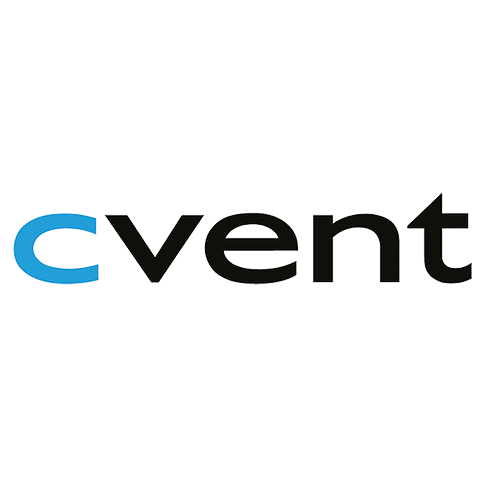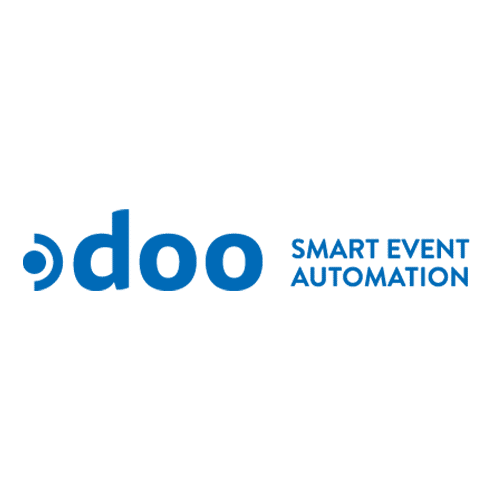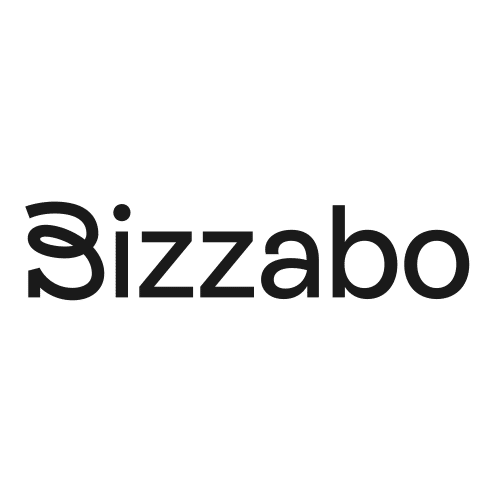Events today are more complex than ever: whether live on site, virtual or hybrid, often all at once. Anyone who still uses individual solutions or Excel for participant registration, communication, livestream integration and evaluation will quickly reach their limits. This is where event management software comes in.
In this article, we don’t just list tools, but categories of event management tools and how to use them in practice. From invitation systems to virtual event management software with interactions and event software with livestream functionality. We also explain how event management software works in conjunction with CRM, ticketing and analytics.
What is event management software?
Event management software is a collective term for digital solutions that support event organisers in the planning, implementation and follow-up of events. This includes traditional face-to-face events as well as virtual and hybrid events.
Essentially, it is event planning software that bundles central processes such as:
- Organisation & resource planning (participant lists, agenda, budget)
- Communication & registration (invitations, ticketing, QR codes)
- Interaction & streaming (chats, polls, livestream function)
- Reporting & Analytics (Feedback, KPIs, ROI)
The advantage: instead of combining numerous event software tools individually, companies can centralise their processes on a single platform. This saves time, reduces sources of error and enables a uniform database. Use event management tools not only for organisation, but also for measuring success and optimisation. This will help you increase the ROI of your events in the long term.
Categories of event management software
Not all event management software performs the same tasks. While some tools specialise in registration and ticketing, others cover the entire event planning process, from the agenda to participant feedback. To understand the differences, it is worth taking a look at the most important categories of event software tools.
In the following sections, we will show you what functions each category offers, how they are used in practice, and what advantages they bring to event organisers. This will give you an idea of which event planning software is best suited to your event.
Planning & Organisation
The basis of every successful event is structured planning. Event management tools for planning and organisation bundle all important tasks in a central platform. This eliminates the tedious work of using Excel lists or scattered documents.
-
participant management
From the invitation to the registration, all information is automatically maintained. Organisers can see in real time who has accepted, declined or been placed on the waiting list.
-
Agenda and resource planning
Sessions, rooms and speakers can be conveniently planned and flexibly adjusted. Changes to the agenda.
-
Budget Management
Many tools have modules for cost control. Budgets can be stored, expenses are documented and deviations become visible at an early stage.
-
Task and Workflow Management
Tasks can be distributed among the team and deadlines set. This allows everyone involved to keep track of to-dos and responsibilities.
-
Greater transparency
Instead of scattering data across Excel spreadsheets or email threads, the software consolidates all event information in one place. This facilitates coordination within the team and reduces queries.
-
Fewer errors
Automated processes, such as synchronising participant lists or reminder functions, prevent information from being lost or having to be maintained twice.
-
Time and resource efficiency
Routine tasks that would otherwise be performed manually run in the background. This leaves more time for strategic decisions and creative event design.
-
Cvent
A leading international platform that is particularly suitable for large events. Cvent offers comprehensive modules for participant management, event logistics and budget control.
→ Visit the Cvent website -
Sweap
A German solution with a focus on automated processes. Particularly interesting for companies that frequently organise similar event formats and want to scale processes efficiently.
→ Visit the Sweap website -
Converve
Specialised provider of networking events. The platform combines traditional event planning with intelligent matchmaking between participants.
→ Visit the Converve website
Communication & Registration
From invitations and registration to on-site check-in, participant communication determines how professionally an event is perceived. Event management tools for communication and registration automate these processes and ensure that both organisers and guests are relieved of the burden.
-
Invitation Management
Organisers can create professional emails or landing pages designed in line with their corporate design. Thanks to automation, reminders or follow-ups are sent out on time.
-
Online Registration
Guests register using intuitive forms. Ticket types, additional options (e.g. workshops) or discount codes can be integrated directly.
-
Ticketing & QR codes
Digital tickets with personalised QR codes simplify access. Check-in on the day of the event can be completed in seconds using a smartphone or scanner.
-
Real-time communication
Changes to the programme or last-minute announcements can be communicated immediately, which is important for a smooth event experience.
-
Professional appearance
Consistent communication design enhances brand perception and signals professionalism.
-
Better participant experience
Guests benefit from simple, digital processes. From registration to quick admission on site.
-
Efficiency in the event team
Instead of maintaining manual email distribution lists, communication and registrations are handled via automated workflows.
-
Data Transparency
All registrations and participant data are recorded centrally and can be used for evaluations and follow-up actions.
-
registr
A platform specifically for digital invitations and guest registrations. registr scores highly thanks to its ease of use, professional design and complete customisability to suit your own event. Also worth mentioning are the integrated solutions for check-in and event apps.
→ Visit the registr website -
Eventbrite
A globally renowned tool that is primarily used for public events, conferences and festivals. Its strengths include its wide reach, integrated ticket shops and the ability to promote events via Eventbrite marketplaces.
→ Visit the Eventbrite website -
doo
German event software with a strong focus on automation. doo offers intelligent processes for invitation management, registration and ticketing, particularly interesting for B2B events and marketing managers.
→ Visit the doo website
Live, virtual & hybrid event platforms
Events today are more diverse than ever: purely live on site, completely virtual, or in a hybrid format with participants both on site and online. To ensure that all target groups have an optimal experience, many companies rely on specialised event management software tools or event apps that enable seamless interaction.
-
Mobile apps for live events
On site, apps facilitate access to agendas, speaker profiles, and location maps. Participants can register, provide feedback, or receive updates directly on their smartphones.
-
Interactive Features
Chats, surveys, Q&A sessions, and gamification elements actively engage the audience, both online and on-site.
-
Networking & Matchmaking
Participants can connect with each other via chat, one-to-one video calls or appointment bookings. AI-powered matchmaking features help to find suitable contacts.
-
Livestream & Broadcast
Lectures or sessions can be broadcast live on the internet, whether for remote participants or to increase reach.
-
Hybrid Integration
All data, from registration to interaction, is consolidated on a single platform. This allows organisers to engage their entire virtual target audience in a live event without having to introduce and maintain separate systems.
-
Flexibility
Organisers can design the event format flexibly and adapt it at short notice, e.g. if an event needs to be switched from live to hybrid.
-
Increased range
Livestreaming and virtual participation options allow significantly more people to participate than in purely face-to-face events.
-
Better interaction
Digital tools encourage participant engagement, both online and in the room. At the same time, these tools help to gather valuable feedback on the event.
-
Central database
All interactions are recorded centrally, which facilitates evaluation and performance measurement.
-
Mobile Event App
A modular app for in-person, virtual and hybrid events. It offers agenda management, interaction tools and push communication directly to guests' smartphones. Ideal for conferences, meetings or trade fairs.
→ Visit the Mobile Event App website -
Polario
Polario combines event app, streaming and interaction tools in one platform and is particularly strong in customisation in corporate design. A special focus here is also on forming long-term communities that extend beyond a single event.
→ Visit the Polario website -
RingCentral Events (formerly Hopin)
An international tool for virtual and hybrid events. With live streaming, breakout sessions, expo environments and networking features, it is particularly suitable for large online conferences and trade fairs.
→ Visit the RingCentral Events website
Reporting & performance measurement
An event is only truly successful if it delivers measurable results. Event management tools offer different approaches to collecting and evaluating data. The focus is on KPIs such as participation rates, interactions, feedback and, in the case of B2B events, for example, the number of qualified leads.
-
Participation Rate
How many invitees registered and actually attended?
-
Engagement
Number of chat messages, polls, Q&A posts or downloads.
-
Feedback
Participant satisfaction, measured via survey or app rating.
-
Conversion & ROI
Leads that are transferred to sales, or revenue from ticket sales.
Many modern event management software solutions such as Cvent, the Mobile Event App or Polario already offer comprehensive analysis functions. Organisers can see directly in the dashboard how many registrations have been received, how actively participants have been involved and which sessions were particularly well attended. Advantage: All data is available in one place and can be exported or converted into reports without additional effort.
Some companies connect external systems to their event software to gain even deeper insights. Typical examples include Google Analytics for website tracking or HubSpot/CRM systems for lead management. The advantage: marketing and sales teams get a complete overview of the entire customer journey, from the invitation to the conclusion of the deal.
Supplementary tools are often used for detailed feedback and interaction. Well-known examples include Typeform, Mentimeter and SurveyMonkey. These solutions specialise in gathering qualitative feedback and visualising participant satisfaction. By connecting to the event platform, results can be evaluated in real time and combined with other KPIs.
All-in-one solutions: Who benefits from a complete system?
While many companies combine individual event software tools, others rely on all-in-one event management software. These complete solutions cover almost all processes, from registration and live streams to reporting and analytics. All-in-one systems are particularly useful if you organise several event formats per year and want to standardise your processes. However, for smaller individual events, specialised event management tools may be the more cost-effective choice.
-
Central database
All information, from participant lists to feedback, is collected in a single system. This saves interface work and prevents data loss.
-
Consistent user experience
Participants use a consistent design and a single platform for registration, interaction and participation.
-
Efficiency in the event team
Organisers save time because they don't have to switch between different tools.
-
Better scalability
All-in-one platforms are particularly suitable for companies that regularly organise events with a similar structure.
-
Flexibility
Those with very specific requirements may sometimes encounter limitations. Individual tools sometimes offer more in-depth functions in this area.
-
Cost
All-in-one solutions are often more expensive. Especially for smaller events, getting started can seem costly.
-
Vendor Lock-in
The dependency on a single provider is higher than when using a combination of different tools.
-
plazz AG
German provider offering Polario, which can be used as an app, web portal and all-in-one event solution. In combination with its guest management and check-in app, it covers the entire event spectrum. Particularly strong for hybrid and live events with interactive features, as well as for building long-term communities.
→ Visit the plazz AG website -
Bizzabo
US provider of event platforms that sees itself as an ‘event experience OS’. Bizzabo offers everything from event websites and ticketing to networking and analytics, and is particularly suitable for large conferences and B2B events.
→ Visit the Bizzabo website -
Cvent
One of the global market leaders in event management from the USA. Cvent combines participant management, event planning, event marketing and reporting in a comprehensive suite and is particularly interesting for corporations and agencies.
→ Visit the Cvent website
How does event management software work?
The functionality of event management software can be divided into three main phases: planning, implementation and follow-up. Modern systems bundle all work steps in a central platform, thereby replacing numerous manual processes. When selecting event management software, consider how well the tool can be integrated into your existing IT structure. A clean connection to CRM or marketing systems saves a lot of manual effort later on.
Planning
-
Event page & registration
With just a few clicks, you can create event websites or landing pages in your corporate design. Participants can register there and select ticket types or additional options if required.
-
Agenda & Resources
Sessions, rooms and speakers are digitally mapped and can be flexibly adjusted.
-
Communication
Email invitations and reminders are sent automatically, and in some tools they are even segmented by target group.
Implementation
-
Check-in & Access
Digital tickets with QR codes ensure quick admission, even with large numbers of participants.
-
Live Interaction
Features such as surveys, Q&A, chat, and gamification increase audience engagement.
-
Streaming
For hybrid events or virtual events, the livestream is integrated directly into the platform.
Follow-up
-
Feedback
Surveys can be sent automatically or integrated via the event app.
-
Reporting
Key figures such as participation rate, dwell time and interaction rate are immediately available.
-
CRM integration
Data from registration and interaction can be transferred to marketing or sales systems (e.g. HubSpot, Salesforce).
Cloud vs. On-Premise
Most providers of event management software now rely on cloud solutions. The advantages are fast updates, scalability and location-independent access. For companies with particularly critical security requirements (e.g. public authorities), some providers also offer on-premise versions or hosting in certified data centres within Germany.
Interfaces & Integrations
A key feature of modern event software tools is their ability to communicate with other systems. Whether CRM, email marketing or payment providers, open interfaces (APIs) ensure that event data can be seamlessly integrated into existing IT landscapes.
Decision-making aid: Which event management software is right for me?
Choosing the right event management software depends heavily on individual requirements. Every event is different, and not every solution is equally suitable for conferences, internal company events or large public trade fairs.
Important selection criteria
Event Size
For small workshops or internal meetings, specialised event software tools focusing on registration or communication are often sufficient. For large events or trade fairs, an all-in-one platform is worthwhile.
Event Format
Live, virtual, or hybrid events have different requirements. Look for features such as livestream integration or mobile apps for on-site participants.
Target Group
International participants require multilingual registration and communication, for example. For B2B events, interfaces to CRM are particularly important.
Budget
Pricing models vary greatly, ranging from inexpensive entry-level solutions to comprehensive enterprise systems. Be sure to factor in not only licence costs, but also implementation and support.
Data protection & hosting
In the DACH region in particular, many companies value German event software with servers located in Germany or the EU.
Selection procedure
Create a requirements profile
Before comparing providers, you should clearly define which features are essential for you. Is it mainly about participant registration and communication, or do you also need live stream integration and networking features? List mandatory features and optional additional features separately. This will make it much easier to evaluate them later.
Conduct market research
Once you have your profile, you can search specifically for suitable event management tools. Make sure that the solutions are tailored to your use case, such as virtual event management software for online events or software for hybrid events for mixed formats.
Test event tools
Theory alone is not enough. Use demo versions, test accounts or pilot projects to check the software’s operation, design and stability live. Pay particular attention to user experience: Is the registration form easy for participants to use? Can the agenda be flexibly adapted? How intuitive is the dashboard for your team?
Obtain References
Talk to other companies or event agencies that already use the software. Real-world experience reports are often more valuable than marketing promises. Particularly important: ask about support experiences, scalability and how well it integrates with existing systems (e.g. CRM, marketing automation).
Typical scenarios
Small internal events
Here, the focus is usually on simple communication and registration. Tools such as registr or doo are often sufficient, as they enable quick processing without major implementation effort.
Medium-sized hybrid conferences
For conferences with participants attending in person and online, streaming, interaction tools and networking features are crucial. Platforms such as the Mobile Event App or Hopin combine these functions and ensure a seamless experience.
Big trade fairs & conferences
International or large-scale events require comprehensive solutions that also cover analytics, exhibitor management and lead generation. Providers such as Polario and Bizzabo are well positioned in this area and offer the necessary scalability.
And if you want to delve even deeper: we don’t have all the answers either, but our colleagues at OMR Reviews specialise in event management tools and are very well positioned. There you will find many other providers in direct comparison with practical reviews.

Requirements for an event platform
Find out what requirements an event platform needs to make your event a complete success in the future.
Summary: Choosing the right event management software
There is a wide variety of event management software available, ranging from specialised tools for registration or interaction to comprehensive all-in-one solutions. For event organisers, this means they can select the software that precisely meets the requirements of their event. While smaller formats are often well served by streamlined tools, larger or hybrid events benefit from solutions that bundle all processes into a single system.
It is important to draw up a clear requirements profile and test different solutions before making a decision. This is the only way to determine whether event software tools are really suitable for your organisation in terms of technology, functionality and budget.
Frequently asked questions (FAQ)
How does event management software work?
Event software bundles all processes into one platform: from planning and registration to live streams and feedback. Organisers can digitally map participant management, communication and performance measurement, which makes processes significantly more efficient.
Which event software is available in German?
Event software in German is particularly important for companies in the DACH region, especially due to GDPR and support in the local language. Providers such as doo, Sweap, Polario and registr are very well positioned in this regard.
Can hybrid events be held using event software?
Yes. Many tools today are specifically designed as software for hybrid events. They combine livestream functions with classic on-site features such as agenda apps or check-in systems. This allows online and live participation to be combined in one system.
Which event software has a livestream function?
Platforms such as Hopin, Polario and bizzabo integrate streaming directly. Other tools allow you to easily embed an external stream (e.g. via Vimeo or YouTube). It is important that the solution also supports interactive features such as chat or Q&A to keep the event lively.















